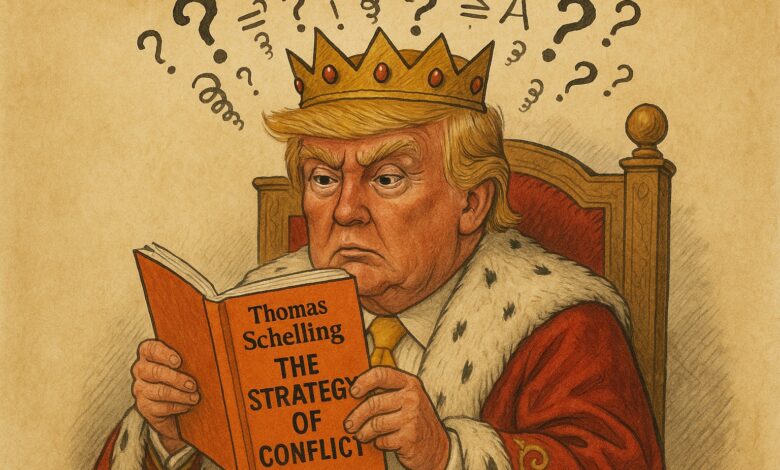TACO vs. the Game-Theoretic Art of the Deal

President Trump’s response to the TACO accusation, as reported by the Wall Street Journal, may not be winning him any accolades in the field of economics. Trump adamantly refuted claims of backing down on tariffs, asserting that his negotiation strategy involves starting with a “ridiculous high number” and then bargaining it down in exchange for concessions. He defended his approach as a form of negotiation rather than cowardice.
However, a closer look at the theory of negotiation reveals that a successful threat must be credible and the individual making the threat must be able to commit to following through on it. In the realm of international trade negotiations, the goal is typically to maximize exports and minimize imports, disregarding the fact that protectionist policies often come at a cost to the populace.
To analyze Trump’s negotiation tactics, we can turn to the Chicken game in game theory. In this scenario, two players, Charlie and Donald, are driving towards each other on a road, testing each other to see who will back down first to avoid a collision. The game is structured such that if both players swerve, they both survive but don’t achieve their best outcome. If one player swerves while the other doesn’t, the swerving player loses out compared to their preferred outcome.
The Hawk-Dove game, which mirrors the structure of the Chicken game, also illustrates the dynamics of conflict and negotiation. In this game, players can choose to be aggressive (hawk) or submissive (dove). The optimal outcome occurs when one player is aggressive while the other is submissive. However, if both players are aggressive, they both suffer negative consequences.
In negotiation scenarios, a successful threat relies on the belief that the individual making the threat is committed to following through. If a player declares their intention to be aggressive but then reveals that it’s just a bluff, they invite the other player to call their bluff and be aggressive themselves.
Trump’s tendency to back down from his threats in trade negotiations has not gone unnoticed by Wall Street, leading many to believe that the markets remain stable because of his perceived tendency to chicken out. This raises questions about the lack of advisors in Trump’s circle who understand game theory and can offer strategic advice.
In contrast, advisors to leaders like Ms. Van der Leyen or Mr. Xi may be well-versed in game theory and unafraid to challenge their rulers with uncomfortable truths. The absence of such advisors in Trump’s inner circle highlights the importance of strategic thinking in negotiation processes.





